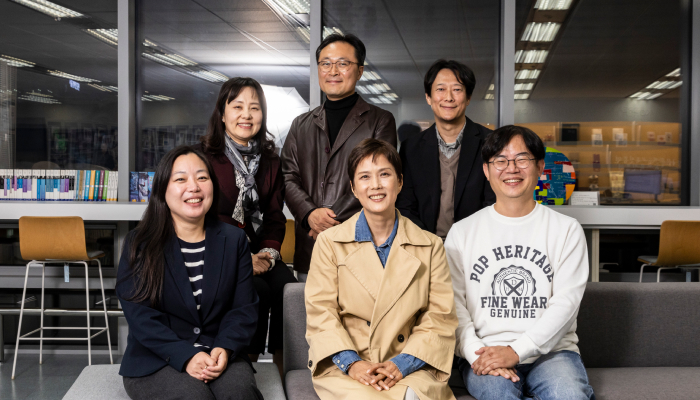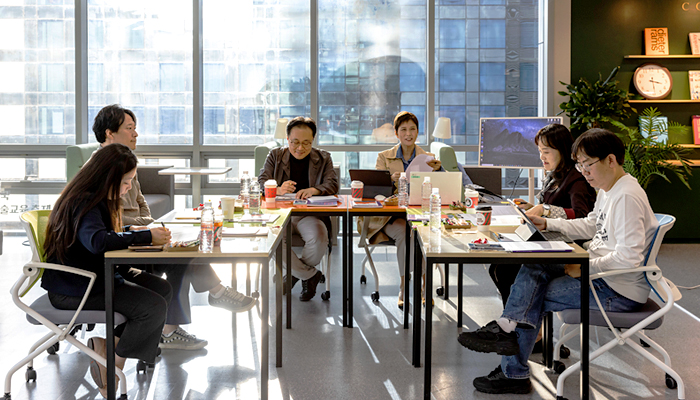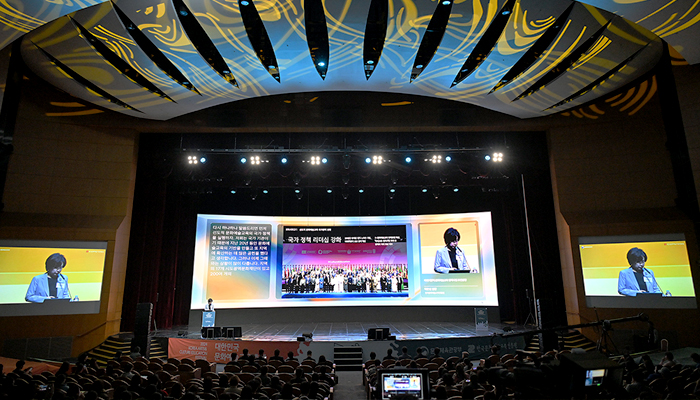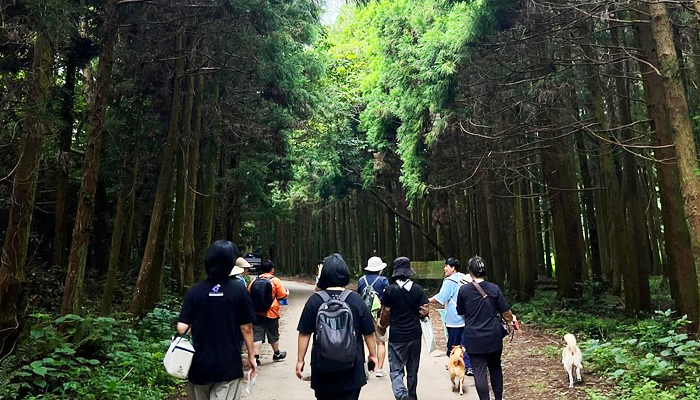
On July 23, Lincoln Center Institute (LCI), New York City, hosted the National Creativity Network (NCN) “Making Room for Creativity” symposium, a capstone event for the two-day Imagination Summit for leaders, policy makers, and interested individuals in the arts, cultural industries, education, and commerce. It also marked the completion of “The Imagination Conversations,” a national conversation series, which was part of Lincoln Center’s “50 Years” celebration, which ran from the fall of 2009 to the spring of 2011.
The one-day “Making Room for Creativity” symposium began with a panel of speakers to ignite the conversation around three key themes: culture, commerce, and education. Scott Noppe-Brandon, executive director of LCI, the educational arm of Lincoln Center, told how in his experience in talking with decision makers it is easy to gain consensus on a common-cause agreement about creativity. The recurring difficulty is around moving into action. What would a new business model look like instead? As Noppe-Brandon saw it, action begins on a local level, where people tend to work in their own environment and touch their own need in such a way that altruism can emerge.
For Betsy Fast, DoSomething.org offers such a resource with its online portal to promote offline action, pitched specifically to young people to not only get involved in projects locally, but to generate new projects where they see a need. Educator Robert Kelly, from the University of Calgary, Canada, told how his institution has made a pedagogical commitment to nurture creativity in all students in every discipline. One way to accomplish this is to require original works of all students in all disciplines. What would it look like, Kelly asked the audience, if original work that was self-initiated by the students themselves was part of the overall fabric of education?
Finally, it was left to the moderator, Sarah Cunningham – who has been at the center of arts education initiatives nationally for many years – to charge the participants with their task in their respective breakout sessions: “Report back to the larger group what you decide among yourselves that will be the most provocative idea that will take place ten years from now as a result of having this conversation.” The participants did indeed bring their thoughts and ideas to the working lunch for a lively conversation with others at their table. One participant summarized the comments by noting that the language of the discussion used ecological metaphors such as “organic,” “nurture,” “growth,” and opportunity for all to “flourish.”
For Scott Noppe-Brandon, it was a rallying call and a galvanizing effort: “The National Creativity Network meeting on Saturday showed that advocates around the country have a firm understanding of the importance of imagination, creativity, and innovation, and the need to foster these skills in American schools and communities. Even more significantly, they recognize that now is the time to turn their beliefs into actions and outcomes. Large-scale change can only be accomplished by networks of doers, rather than lone individuals, and that is why NCN is such an invaluable resource.” The consensus of those involved was that the symposium’s three themes will be realized if each and every individual can flourish and contribute his or her unique talents in a culture that enriches the lives of all.

About Lincoln Center Institute (LCI)
Lincoln Center Institute (LCI), the educational cornerstone of Lincoln Center for the Performing Arts, is the leading organization in developing skills of imagination, creativity, and innovation through guided encounters with the visual and performing arts, and other objects of study. Since its founding in 1975, LCI has shared its unique inquiry-based method of education with more than 20 million students, educators, and administrators locally and internationally.
Written by Terri McNichol (Correspondent in U.S.A ) Photographed by Making Creativity Happen: Photos courtesy of Lincoln Center Institute
기사가 좋았다면 눌러주세요!



















댓글 남기기